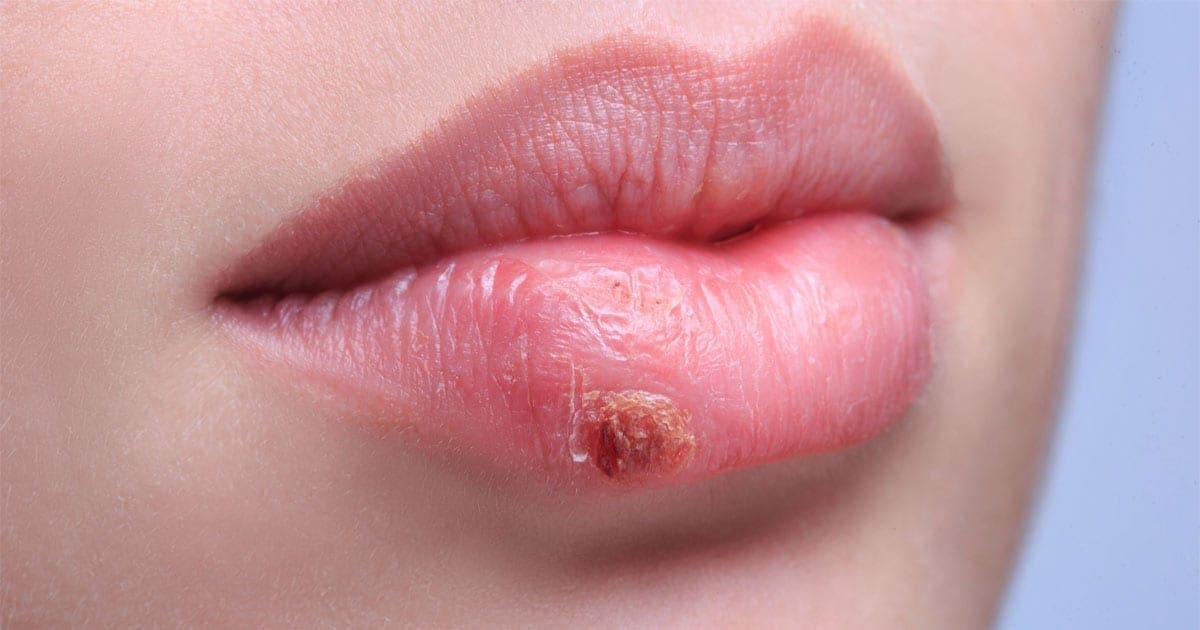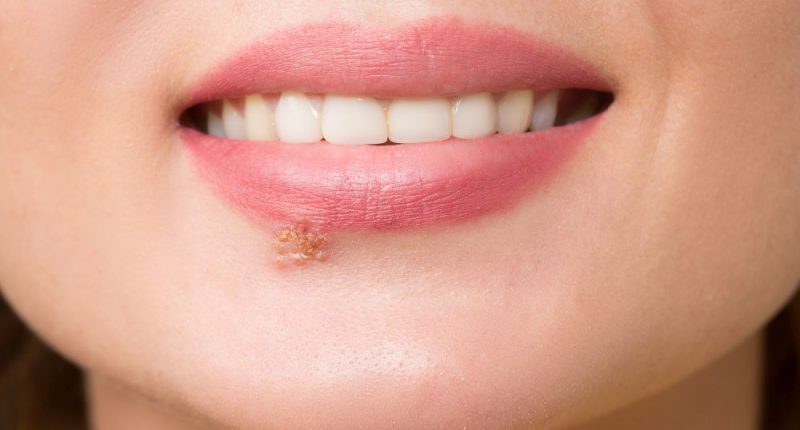Find out “Does Having Herpes Ruin Your Life?” There are a lot of myths and misconceptions out there about herpes. For example, some people think that if you have herpes, you can never have $ex again or that your life is basically ruined.
Herpes is a virus that can stay in your body for years and even decades without ever causing any symptoms. In fact, most people with herpes don’t even know they have it. So, no, having herpes doesn’t ruin your life.
There are some things to consider, however, if you do have herpes. In this blog post, we will explore some of the realities of living with herpes and how to manage the virus if you do have it.

What is Herpes?
Herpes is a virus that can cause sores and blisters on the skin. It is most commonly spread through sexual contact, but it can also be spread through kissing or other close contact with someone who has the virus. Herpes can be a very mild infection that causes no symptoms, or it can be a more severe infection that causes pain, itching, and burning. Herpes is not curable, but it is treatable. There are medications that can help to reduce the severity of symptoms and there are steps that people can take to reduce their risk of spreading the virus to others.
The Different Types of Herpes
There are two different types of herpes, and both can cause serious problems.
Herpes simplex virus type 1 (HSV-1) is the most common form of herpes. It usually causes cold sores around the mouth, but it can also cause genital herpes.
Herpes simplex virus type 2 (HSV-2) is the less common form of herpes. It usually causes genital herpes, but it can also cause cold sores around the mouth.
Both HSV-1 and HSV-2 are highly contagious and can be spread through sexual contact. They can also be spread through skin-to-skin contact, such as kissing or touching a sore.
HSV-1 and HSV-2 are both lifelong infections with no cure. However, there are treatments available that can help to manage the symptoms and reduce the risk of transmission to others.
The Symptoms of Herpes
Herpes is a viral infection that is characterized by painful sores or blisters around the mouth, genitals, or anus. The virus is spread through skin-to-skin contact and can be transmitted even when there are no visible sores. Herpes can cause both physical and emotional discomfort, and it can be difficult to manage the symptoms.
The most common symptom of herpes is the appearance of small, fluid-filled blisters on the skin. These blisters may be painful and can eventually burst and crust over. Other symptoms of herpes can include:
- Fever
- Muscle aches
- Sore throat
- Fatigue
- Swollen lymph nodes
How to Treat Herpes
If you have herpes, there is no need to despair. Although it is a sexually transmitted infection, it is possible to treat it and live a normal, healthy life.
There are two types of herpes: HSV-1 and HSV-2. HSV-1 is commonly known as oral herpes, and it can cause sores around the mouth or nose. HSV-2 is commonly known as genital herpes, and it can cause sores around the genitals or anus.
Herpes is most often spread through sexual contact with someone who has the virus. It can also be spread through skin-to-skin contact with someone who has the virus, even if there are no visible sores.
Once you have been infected with herpes, the virus will remain in your body for the rest of your life. However, that does not mean that you will have symptoms all the time. In fact, most people with herpes never have any symptoms at all.
When symptoms do occur, they can range from mild to severe. The most common symptom is a group of small blisters that break open and turn into ulcers. These ulcers can be very painful and last for several weeks. Other symptoms include fever, body aches, swollen lymph nodes, and headache.
If you experience any of these symptoms, it is important to see a doctor right away so that you can start treatment. There is no cure for herpes, but there are treatments that can help to reduce the symptoms and shorten the duration of outbreaks.
One of the most effective treatments for herpes is an antiviral medication. These drugs can help to reduce the pain and shorten the duration of ulcers. In some cases, they can also help to prevent future outbreaks.
Antiviral medication is typically taken for five to ten days during an outbreak. It is important to start taking the medication as soon as possible after symptoms begin so that it can be most effective. Some people may need to take antiviral medication continuously to prevent future outbreaks.
If you have frequent or severe herpes outbreaks, your doctor may also prescribe suppressive therapy. This involves taking antiviral medication every day, even when you do not have any symptoms, in order to reduce the risk of spreading the virus to others.
There are also a number of home remedies that can help to relieve the pain and itchiness associated with herpes sores. These include applying ice packs, taking warm baths, and using over-the-counter creams or ointments.
If you have herpes, it is important to practice safe sex so that you do not spread the virus to others. This includes using condoms during sexual intercourse and avoiding sexual contact when you have any symptoms.
You should also avoid sharing towels, razors, or other personal items with someone who has herpes. If you think you may have been exposed to the virus, it is important to see a doctor so that you can be tested and start treatment if necessary.
Conclusion
If you have herpes, it doesn’t mean that your life is over. While it’s true that living with herpes can be difficult and sometimes painful, it’s important to remember that there are many people in the world who have herpes and live happy, healthy lives. If you’re struggling to cope with your diagnosis, reach out to a trusted friend or family member for support, or consider talking to a counselor who can help you manage your feelings. Remember: you are not alone.
Does Having Herpes Ruin Your Life? Back To Home Page
Last Updated on November 17, 2022 by 247 News Around The World






